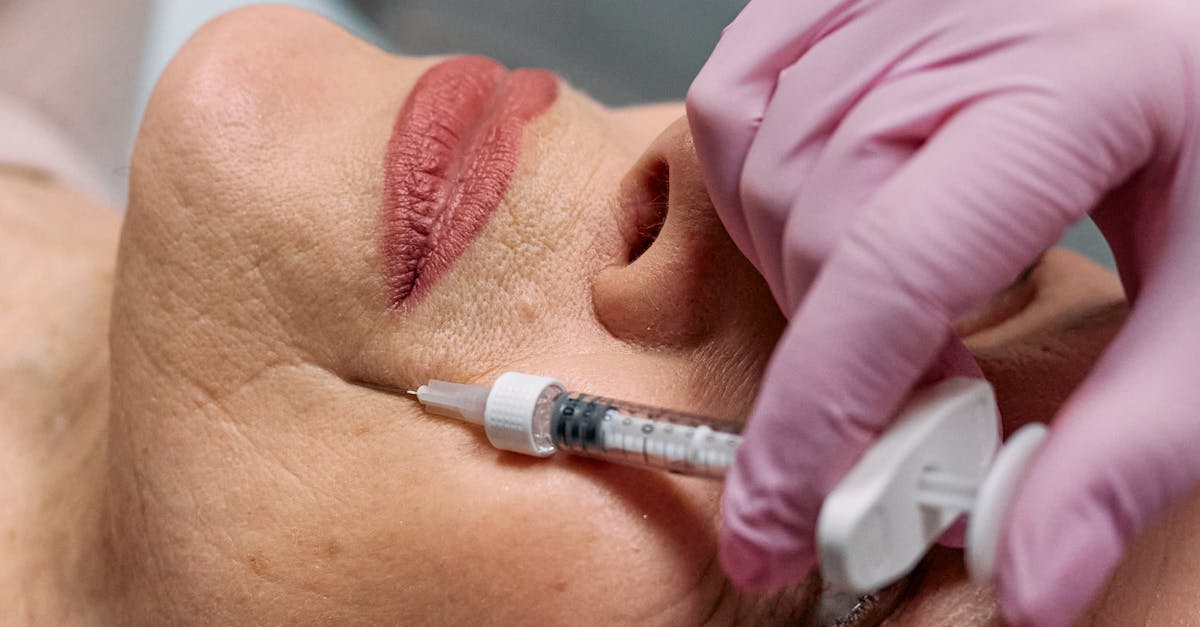
Table Of Contents
Individuals on certain medications
Individuals on certain medications should exercise caution before opting for Botox Injections. The interaction between Botox and some medications can potentially lead to adverse effects or lessen the effectiveness of the treatment. Medications such as antibiotics, muscle relaxants, and blood thinners can interfere with the results of Botox, causing complications that may compromise the desired outcome. It is crucial for individuals taking these medications to consult their healthcare provider before considering Botox Injections to ensure their safety and the efficacy of the treatment.
Moreover, individuals undergoing specific treatments or taking medications that weaken the immune system should be vigilant when contemplating Botox Injections. Immunosuppressive medications can heighten the risk of infection following Botox procedures, leading to severe consequences. Patients with conditions such as lupus, rheumatoid arthritis, or undergoing chemotherapy should thoroughly discuss their medical history with a qualified healthcare professional to address any potential risks associated with receiving Botox Injections. It is essential to prioritize one's health and well-being by seeking advice from a medical expert before proceeding with any cosmetic procedures involving Botox.
Possible interactions and side effects
Possible interactions and side effects of Botox Injections are crucial aspects to consider before undergoing the procedure. Interactions may occur when Botox is combined with certain medications, leading to potential complications or reduced effectiveness of the treatment. It is essential for individuals to disclose all medications they are currently taking to their healthcare provider to prevent any adverse reactions.
Moreover, understanding the potential side effects of Botox Injections is necessary for making an informed decision. Common side effects may include temporary bruising, swelling, or redness at the injection site. In some cases, individuals may experience headaches or flu-like symptoms post-treatment. Being aware of these possible interactions and side effects can help individuals determine whether Botox is the right choice for them.
Patients with unrealistic expectations
Patients with unrealistic expectations may find themselves dissatisfied with the results of their Botox Injections. It is essential for individuals considering this cosmetic procedure to have a clear understanding of what can and cannot be achieved through Botox treatment. Unrealistic expectations can lead to disappointment and may result in a lack of satisfaction with the outcome of the injections.
Having realistic expectations is crucial when undergoing Botox Injections. Patients should engage in open and honest discussions with their healthcare provider to ensure that their goals align with the potential results of the procedure. Failure to manage expectations can lead to unhappiness with the cosmetic changes achieved through Botox treatment.
Disappointment with results
Unfortunately, dissatisfaction with Botox results can occur in some individuals, particularly when expectations are not aligned with the outcome. It is crucial for patients to have a realistic understanding of what Botox Injections can achieve and the limitations they may present. Sometimes, individuals expect drastic transformations that may not be achievable with Botox alone, leading to disappointment with the final results.
Moreover, individual differences in how the body reacts to Botox Injections can also contribute to varying outcomes. Factors such as skin type, muscle strength, and overall health can influence the effectiveness and longevity of Botox results. It is essential for individuals considering Botox to have a thorough consultation with a qualified healthcare provider to discuss their goals, potential outcomes, and any concerns they may have to ensure realistic expectations and minimize the risk of disappointment post-treatment.
Those with untreated psychological issues
Individuals with untreated psychological issues should exercise caution before considering Botox Injections. The decision to undergo such cosmetic procedures can greatly impact one's mental well-being. Patients dealing with untreated psychological issues may find themselves more vulnerable to emotional distress and dissatisfaction following the treatment.
Emotional stability is crucial in managing expectations and handling potential disappointments that may arise from Botox Injections. Patients with untreated psychological issues may struggle with self-image concerns and may not be fully prepared for the outcomes of the procedure. It is important for individuals in this category to seek appropriate medical and psychological support before deciding to undergo any cosmetic treatments involving Botox Injections.
Emotional distress or dissatisfaction
Individuals experiencing emotional distress or dissatisfaction are not suitable candidates for Botox Injections. If a person is feeling emotionally unstable or dissatisfied with their appearance, getting Botox may not effectively address their underlying concerns. Botox can enhance physical features, but it is not a psychological remedy for emotional distress or dissatisfaction. Patients dealing with these issues should seek appropriate mental health support and solutions before considering Botox Injections.
It's crucial to recognize that Botox is not a cure-all for deep-rooted emotional issues. Choosing to undergo Botox Injections to alleviate emotional distress or dissatisfaction may lead to disappointment. Patients should have realistic expectations regarding the outcomes of Botox treatment. Seeking therapy or counseling to address underlying psychological concerns is paramount before committing to cosmetic procedures like Botox Injections.
FAQS
Can individuals on certain medications get Botox?
It is advisable to consult with a healthcare provider before getting Botox if you are on certain medications, as they may interact with the treatment.
What are the possible interactions and side effects of getting Botox?
Possible interactions and side effects of Botox can vary among individuals, so it's essential to discuss your medical history with a qualified healthcare professional before considering the treatment.
Who should avoid getting Botox due to unrealistic expectations?
Patients with unrealistic expectations regarding the results of Botox treatment should reconsider undergoing the procedure, as managing expectations is crucial for satisfaction with the outcome.
What can happen if someone with untreated psychological issues gets Botox?
Individuals with untreated psychological issues should avoid getting Botox, as the treatment may not address underlying emotional concerns and could potentially lead to dissatisfaction.
How can emotional distress or dissatisfaction be linked to getting Botox?
Emotional distress or dissatisfaction with one's appearance can be exacerbated by getting Botox, particularly if the individual has untreated psychological issues. It is crucial to address these concerns before undergoing the treatment.


